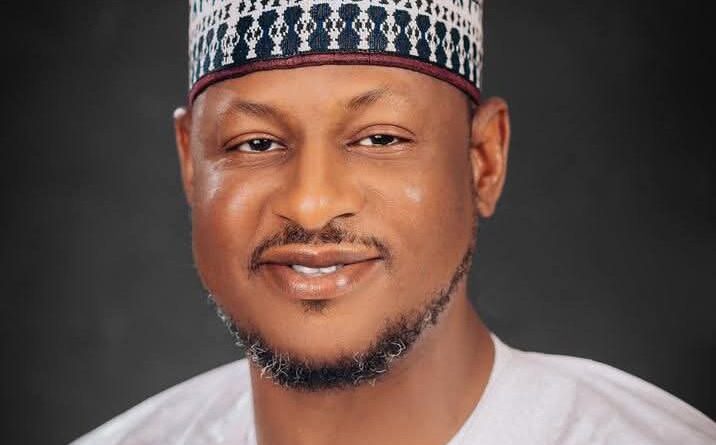What Radda is doing about insecurity in Katsina, By Aliyu Sulaiman Babasidi
Opposition politicians in Katsina State have capitalised on the Governor’s self-admittance that insecurity still exists in 26 of the state’s 34 local governments. To them, this was proof that he has failed to tackle the issue as promised. They also lean heavily on the fact that record amounts of funds have been budgeted to fight insecurity, turning budget figures into political currency. Social media commentators have joined the chorus, repeating the same lines as if repetition automatically converts assumptions into truth.
Assuming but not conceding that the subnational government in Katsina has failed or is not in sync with the federal government in its fight against insecurity, should that be enough to justify the politicisation and deliberate exaggeration of a matter that has claimed thousands of innocent lives? Should the fear and grief of ordinary people become material for electoral gain?
These are uncomfortable questions, but discomfort is sometimes necessary, especially when political desperation begins to creep into a matter as sensitive as security. The truth is that beyond the noise, and in fact, behind the smoke and loud criticism, there is a leadership approach that not many people are paying attention to.
Mr Dikko Umaru Radda, the Governor of Katsina State, is a vocal person, a man not shy to speak when it matters. On the issue of insecurity bedevilling his state, he has always spoken from his heart, and he has taken concrete constitutionally grounded steps to confront it. The two sides of his leadership, his rhetoric and his action, complement each other in ways that deserve more honest reflection. Not more than a month ago, while commissioning another batch of one hundred Community Watch Corps officers, a corps of gallant young men created to support the security efforts of the armed forces, he reiterated his stance with clarity. He said, “I have publicly maintained that the Katsina State Government will not negotiate with bandits. We will always welcome peace, but we will not reward criminality.” This is not the language of a leader looking for shortcuts. It is the language of a leader trying to hold a moral line, even when the political cost of doing so is high.
His commissioning of these officers reinforces that line more than any spin could. Beyond his clear stance on refusing negotiations with bandits, the Governor has consistently called for a united fight against criminality. He reminded citizens that “bandits do not ask whether you belong to APC, PDP, AC or any other group. We must come together as one united people because violence cannot solve what dialogue, understanding and cooperation should address.”
This is not empty poetry. It is a plea for social cohesion at a time when division is becoming cheaper and more politically rewarding. His rhetoric seeks to fortify his policies, and his policies aim to complement the armed forces who remain under the direct command of President Bola Ahmed Tinubu.
Critics can argue that insecurity persists. They will not be wrong. Even the Governor admits openly that the threat remains widespread and deeply rooted in some communities. However, what people often overlook is the honesty embedded in his admission. Many leaders hide behind public relations. Many prefer to feed the masses comforting illusions. Radda, for all his imperfections, has chosen a harder path. He has chosen honesty as a leadership tool, even when it hands ammunition to his opponents.
This is something ordinary citizens often appreciate more than political strategists do. It is now clear to Nigerians that the media, whether traditional or digital, is a powerful force in shaping national perception. It is also clear that fake news and misinformation can drastically alter the trajectory of a nation.
Only recently, President Donald Trump made unverified allegations circulating on social media to justify his decision to designate Nigeria as a Country of Particular Concern (CPC). This was an international embarrassment that did not stem from facts. It stemmed from political actors who manufactured narratives, amplified fear and created the impression of a country spiraling beyond control.
The consequences are diplomatic, economic and psychological. If a foreign president could be misled by propaganda generated within Nigeria, one can only imagine the danger when domestic opponents deliberately exaggerate insecurity for personal advantage.
The amplification of fake news about attacks, the reckless sharing of unverified videos, and the politicisation of genuine tragedy all feed into a cycle that weakens communities and emboldens terrorists. Terrorists thrive on perception. Every exaggerated report of their strength becomes free oxygen. Every manipulated headline becomes a recruitment tool.
Political actors who knowingly amplify such narratives may think they are hurting the governor, but the damage is far deeper. They are hurting the people they claim to represent.There is a responsible way to criticise government. Criticism helps democracy breathe. It improves accountability and sharpens leadership. However, there is a difference between criticising government to improve outcomes and criticising insecurity to score political points. One builds. The other destroys. The latter is a betrayal of the very citizens whose fears are being weaponised.
Katsina is not out of the woods. Nobody is pretending otherwise. But the state is not standing still. The expansion of community-based security, the refusal to legitimise criminality, the emphasis on unity, the honesty in acknowledging the scale of the problem and the willingness to confront it all show that there is direction, strategy and conviction behind the scenes.
What we need now is a more responsible civic culture where truth is amplified rather than fear, where leaders are held to account without turning insecurity into political entertainment and where citizens understand that security is not only a government duty. It is a collective moral responsibility.Katsina is fighting back. That fight deserves honesty, not hysteria. It deserves scrutiny, not sabotage. And it deserves hope, because hope is a security strategy on its own.
*Babasidi is a Risk and Compliance Manager. He can be reached through


